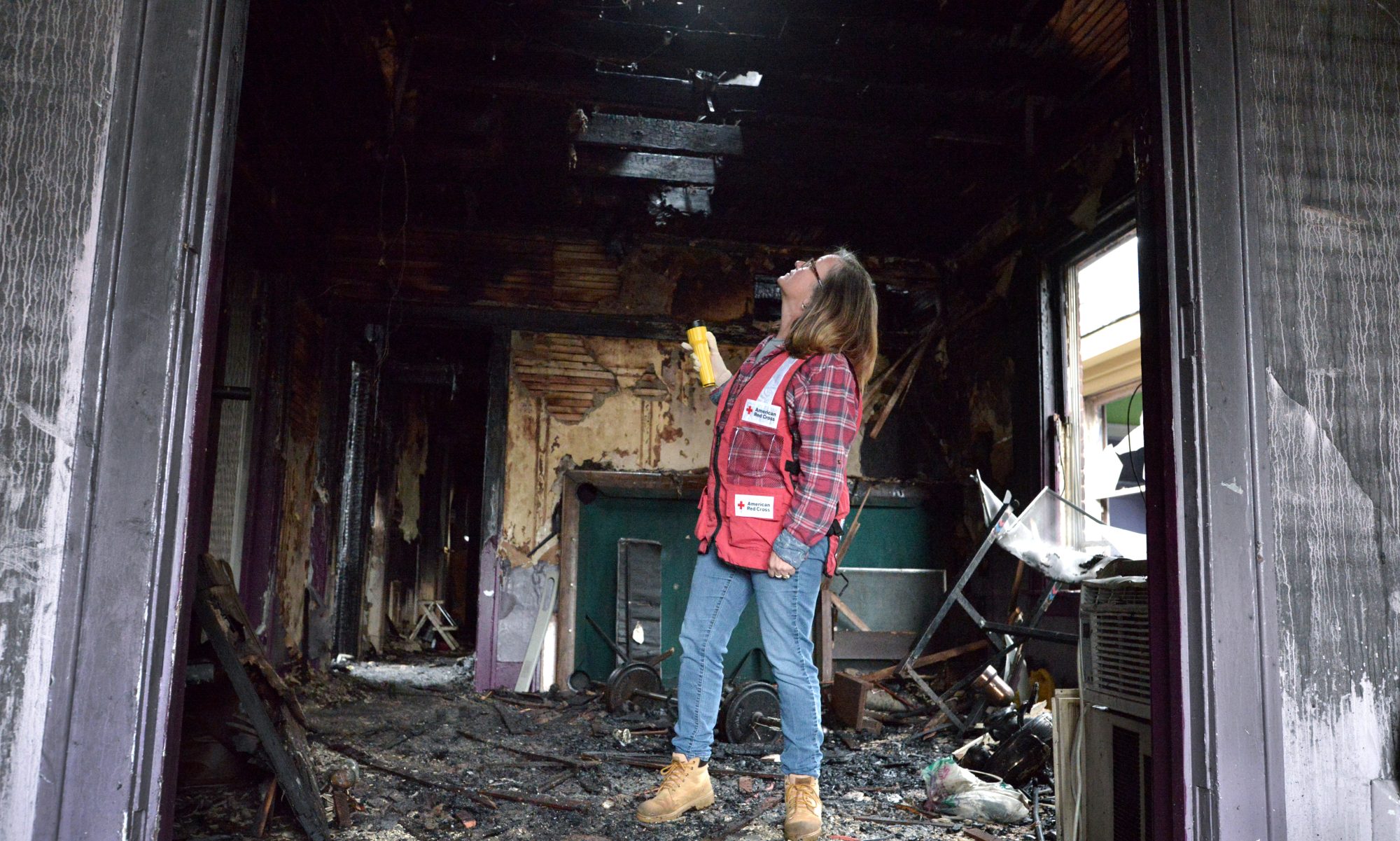For 26 years Helen Ostien has been counseling people coping with a disaster as part of mental health services at the American Red Cross.

“We use strategies to help people who are experiencing trauma. We keep our focus on the here and now and what they need to do to begin moving forward in their recovery,” said Ostien, a Red Cross volunteer who leads mental health services for the Michigan Region. She is a retired social worker and registered nurse.
Mental health services became part of Red Cross disaster response services in 1992 to respond to the psycho-social needs of people affected by disaster, including Red Cross workers. Counseling is provided by disaster mental health volunteers who are master’s level licensed mental health professionals.
Services are not limited to major disasters like tornadoes, hurricanes and wildfires, which have grown more extreme and intense in recent years (the Red Cross is responding to nearly twice as many large disasters as it did 10 years ago). Mental health volunteers also meet with individuals and families after home fires, ice storms, flooding situations and other local disasters.
No matter the circumstance, the trauma of a disaster can linger for days, weeks, months and longer, Ostien said. People process their emotions individually, similarly like those grieving the loss of a loved one or friend.
The emotional impact of experiencing a disaster leads to feelings of stress, uncertainty, insecurity and anxiety.
“We expect people to have intense, emotional reactions. That’s normal,” said Ostien, who has counseled roughly 1,000 people throughout her Red Cross career. She has deployed to many hurricanes, including Katrina, Sandy and Harvey, as well as 9/11, floods in Mississippi and other disasters across the country.
“We worry a little bit about people who don’t react,” she said. “In the immediate aftermath, there are some who have a honeymoon effect or are very stoic and they are not so distressed. But then the reality starts setting in a little bit down the road.”
The Red Cross utilizes psychological first-aid strategies when counseling a person in the aftermath of a disaster. This evidenced-based approach creates a place of safety, connectedness and hope to reduce stress symptoms and put the person on the path to a healthy recovery.
“We help them to use their coping skills to start problem solving, to draw on their own resources like family support, community agencies and insurance, and to start thinking in hopeful ways of putting their lives back together,” Ostien said.
“When you are in the right place at the right time to offer something to someone in need, it’s like a bright light that shines through a pinpoint.”
By David Olejarz, regional communications director
